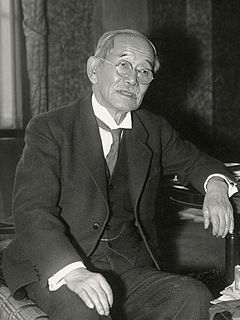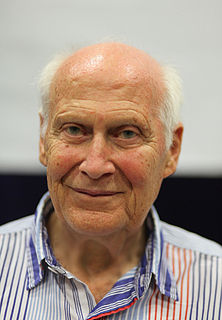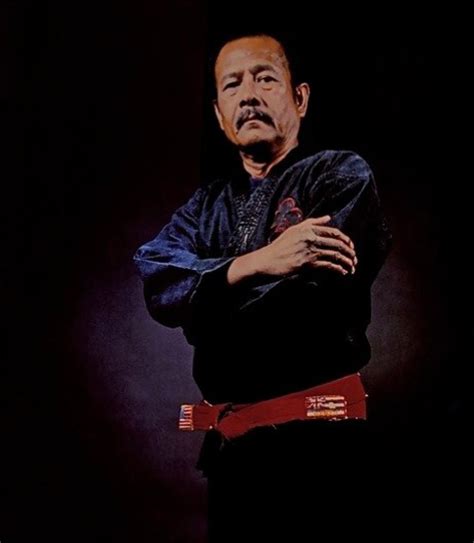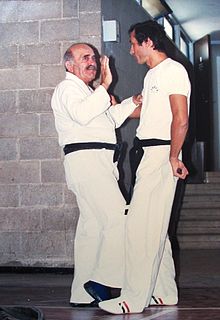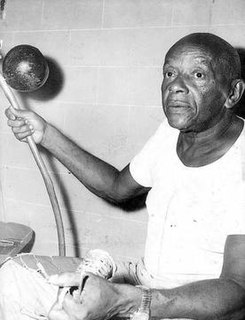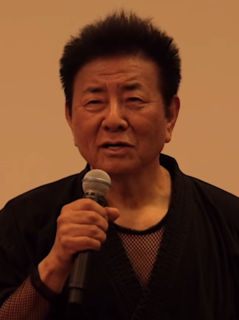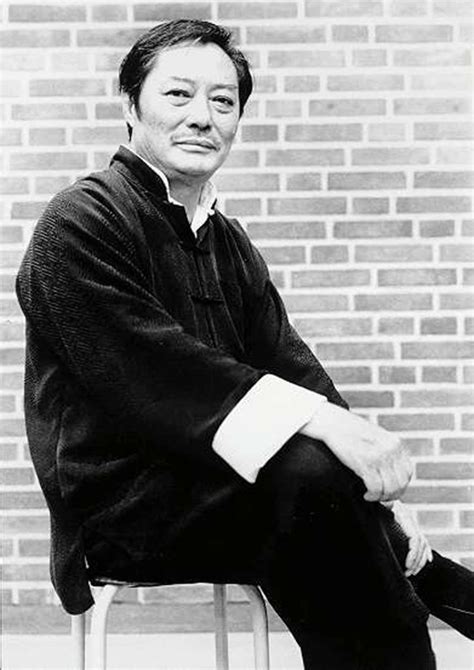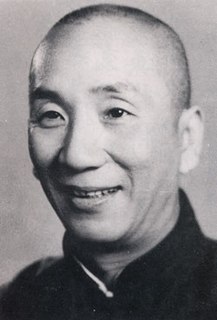A Quote by Kano Jigoro
In an argument, you may silence your opponent by pressing an advantage of strength or of wealth, or of education. But you do not really convince him. Though he is no longer saying anything, in his heart he still keeps to his opinion, the only way to make him change that opinion is to speak quietly and reasonably. When he understands that you are not trying to defeat him, but only to find the truth, he will listen to you and perhaps accept what you tell him.
Related Quotes
Why prove to a man he is wrong? Is that going to make him like you? Why not let him save face? He didn't ask for your opinion. He didn't want it. Why argue with him? You can't win an argument, because if you lose, you lose it; and if you win it, you lose it. Why? You will feel fine. But what about him? You have made him feel inferior, you hurt his pride, insult his intelligence, his judgment, and his self-respect, and he'll resent your triumph. That will make him strike back, but it will never make him want to change his mind. A man convinced against his will is of the same opinion still.
Never do I argue with a man with a desire to hear him say what is wrong, or to expose him and win victory over him. Whenever I face an opponent in debate I silently pray - O Lord, help him so that truth may flow from his heart and on his tongue, and so that if truth is on my side, he may follow me; and if truth be on his side, I may follow him.
In Randori we teach the pupil to act on the fundamental principles of Judo, no matter how physically inferior his opponent may seem to him, and even if by sheer strength he can easily overcome him; because if he acts contrary to principle his opponent will never be convinced of defeat, no matter what brute strength he may have used.
When you have received Him, stir up your heart to do Him homage; speak to Him about your spiritual life, gazing upon Him in your soul where He is present for your happiness; welcome Him as warmly as possible, and behave outwardly in such a way that your actions may give proof to all of His Presence.
If your enemy is secure at all points, be prepared for him. If he is in superior strength, evade him. If your opponent is tempermental, seek to irritate him. Pretend to be weak, that he may grow arrogant. If he is taking his ease, give him no rest. If his forces are united, separate them. If sovereign and subject are in accord, put division between them. Attack him where he is unprepared, appear where you are not expected.
Phrases like Worship Service or Service of Worship are tautologies. To worship God means to serve him. Basically there are two ways to do it. One way is to do things for Him that He needs to have done - run errands for Him, carry messages for Him, fight on His side, feed His lambs, and so on. The other way is to do things for Him that you need to do - sing songs for Him, tell Him what's on your mind and in your heart, in general rejoice in Him.
Tell a devout Christian that his wife is cheating on him, or that frozen yogurt can make a man invisible, and he is likely to require as much evidence as anyone else, and to be persuaded only to the extent that you give it. Tell him that the book he keeps by his bed was written by an invisible deity who will punish him with fire for eternity if he fails to accept its every incredible claim about the universe, and he seems to require no evidence what so ever.
Even if you make a movie about a criminal locked up in prison, you may not support him as a criminal, but you have to like him on some level. You have to love your protagonist and respect him. He will only open his heart to you when he believes that you are treating him with respect, with love. Only then will there be no more walls between the filmmaker and the protagonist.
The goal of prayer is the ear of God, a goal that can only be reached by patient and continued and continuous waiting upon Him, pouring out our heart to Him and permitting Him to speak to us. Only by so doing can we expect to know Him, and as we come to know Him better we shall spend more time in His presence and find that presence a constant and ever-increasing delight.
Often nothing keeps the pupil on the move but his faith in his teacher, whose mastery is now beginning to dawn on him .... How far the pupil will go is not the concern of the teacher and master. Hardly has he shown him the right way when he must let him go on alone. There is only one thing more he can do to help him endure his loneliness: he turns him away from himself, from the Master, by exhorting him to go further than he himself has done, and to "climb on the shoulders of his teacher."
When the family has been brought into its natural order, the individual can leave it behind him while still feeling the strength of his family supporting him. Only when the connection to his family is acknowledged, and the person's responsibility seen clearly and then distributed, can the individual feel unburdened and go about his personal affairs without anything from the past weighing him down or holding him back.
We are trying not so much to make God listen to us as to make ourselves listen to him; we are trying not to persuade God to do what we want, but to find out what he wants us to do. It so often happens that in prayer we are really saying, 'Thy will be changed,' when we ought to be saying, 'Thy will be done.' The first object of prayer is not so much to speak to God as to listen to him.
